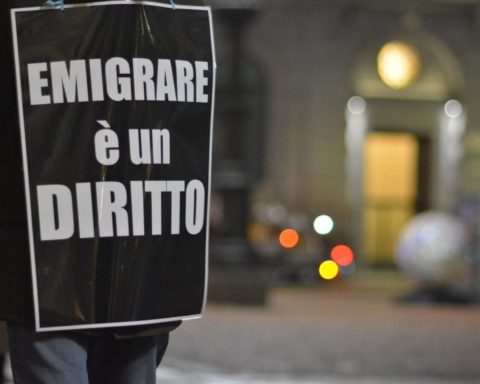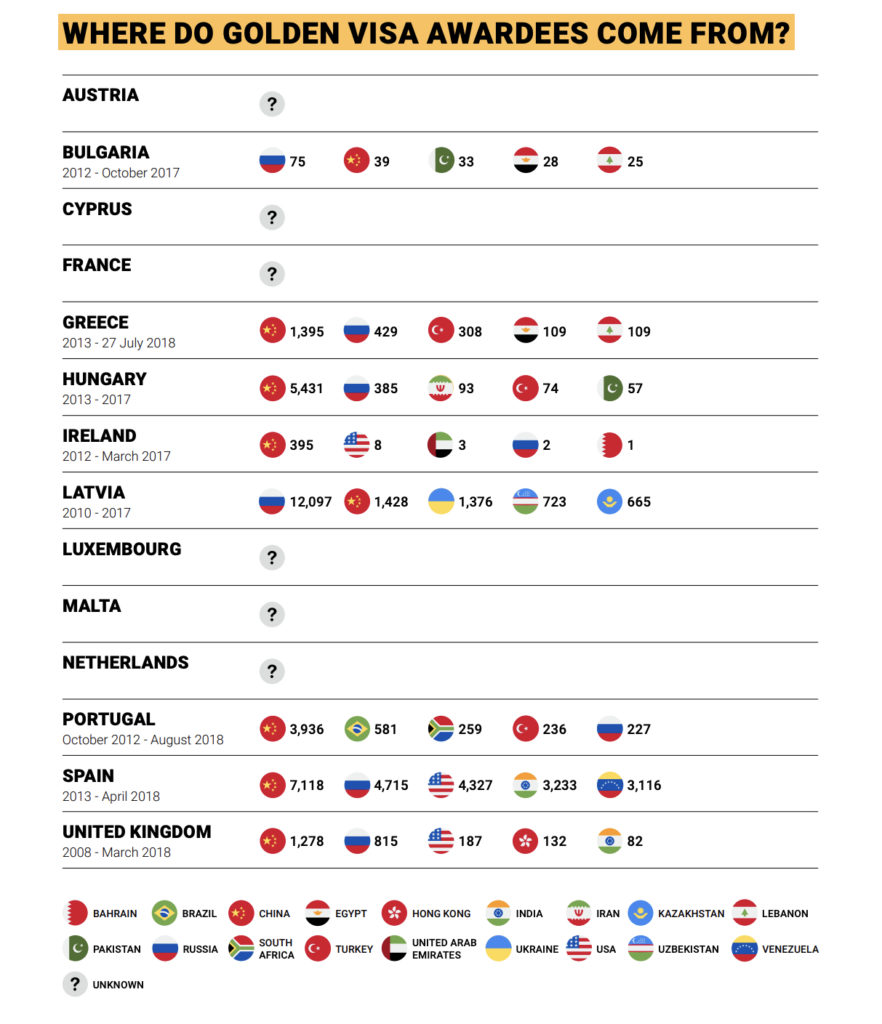by Oiza Q. Obasuyi
Translation: Setare Mazdaee
The terms “migration” and “migrant” are mostly used to refer to people coming from South America, Africa, the Middle East, and South Asia.
To indicate the displacement of people from the United States, Japan, or the European Union, the terms used are mainly “travel”, “expat”, “brain drain”.
The linguistic asymmetry used to describe human mobility suggests a disparity not only dictated by the perception of “displaced” people, but clearly also by the privilege of the nationality of the country of origin. This privilege depends not only on the wealth of the country in which one is born – still considering the social disparities that are found even within richer countries -, but on the passport.
All passports are equal, but some are more equal than others
The definition of passport is generally known; however, one rarely reflects on the power and meaning of such document. The passport is used to travel from one country to another: it is in fact the pass to cross borders and reach the desired destination.
However, the passport is a rather recent invention. The investigation The man Who knows no boundaries, written by journalist Hannes Grassegger in Das Magazin, reads: “It was only in the mid-20th century that proving one’s citizenship and therefore having a visa became a requirement. Historically, the passport […] is the evolution of the ancient safe conduct that guaranteed protection to aristocrats or to their envoys”. The investigation also reads: “researcher Ayelet Schachar – lawyer, University of Toronto – talks about a passport lottery in which the country of birth condemns the majority of humanity to be among the losers”.
In fact, in the updated ranking of the Global Passport Power Rank 2023, the top seven are mainly north-western countries – the Italian passport is among the ones in second place.
The only exception is the United Arab Emirates (UAE) which is at the top of the ranking: “the UAE ranked higher than countries like Germany, Sweden, Finland and Luxembourg, although these countries are all in the top five”, reports journalist Natasha Turak on CNBC. Basically, holding a UAE passport means that one can travel to several countries without a visa, and in many others it can be obtained directly on arrival: the expatriate population amounts to about 88.52%, or 9.0 million, while Emirati citizens amount to only 11.48%, or 1.17 million, according to Global Media Insight statistics.
Unlike people of Syrian, Nigerian, Sudanese or Pakistani nationality, a person of Emirati nationality can enter the Schengen area without having to apply for a visa; this depends mainly on the economic-diplomatic relations between the UAE and the European Union (EU), consisting of bilateral agreements for energy supply and trade -turning a blind eye to the human rights violations which are occurring daily in the rich Gulf country.
The absence of legal ways to enter EU countries and the impossibility of obtaining travel visas at the embassies of European countries led to the creation of a “double track”: one is travelled by people forced, for example, to cross the dangerous Mediterranean route, or the borders from the Balkan routes (facing violent and illegal pushbacks from the border authorities). The other is the first-class track to which European countries open their doors, and is travelled by those who can afford to buy so-called golden visas or passports.
La libertà di movimento non è uguale per tutti
di Oiza Q. Obasuyi
Golden passports and visas
As anticipated, if travelling to Europe turns out to be an impossible obstacle course for most people from the countries of the Global South, the procedures for obtaining visas and passports are much simpler for some categories of people. As explained in the official website of the Schengen area, this is possible through specific schemes: the Golden Visa is an immigration program that guarantees wealthy people a residence permit in a foreign country in exchange for a major investment. Similarly, the Golden Passport is a program that guarantees [the acquisition] of the citizenship and passport of the country in which one invests. In both cases, the investor is usually not required to live full-time in the country in which they have invested.
In order to qualify for a golden visa or a golden passport in Europe, the investment would have to be quite high: the amount ranges from hundreds of thousands to millions of dollars. In this regard, in 2018 the Transparency International coalition published a report titled European Getaway 1 in which the high risk of corruption generated by the schemes Golden Visa and Golden Passport was analysed. As stated in the report, 6 thousand foreign citizens obtained citizenship in the EU from 2008 to 2018, and almost 100 thousand obtained EU residence through golden visas and passports. “Spain, Hungary, Latvia, Portugal and the United Kingdom (before Brexit) granted the highest number of golden visas – more than 10.000 each – to investors and their families. They are followed by Greece, Cyprus, and Malta”. The golden visa programs attracted about 25 billion euros in foreign direct investments over the same period of time.
As reported by Transparency International, although such schemes are legal, the risk of corruption arises from the lack of transparency of the EU states (for example, none of the EU countries except Austria and Malta made the list of investors public), and because – analysing in particular the cases of Cyprus, Malta and Portugal – there was a serious lack of due controls on the applications.
As explained in the report, this is because golden visas schemes are highly desirable for anyone dealing with corruption, as they offer access to a safe haven – “and not only in terms of luxury lifestyle, but also banking-wise, as a customer with an EU passport will be in a better position than someone from a country considered at risk or subject to sanctions”, explains journalist Duccio Facchini on Altreconomia.
The high risk of selling golden visas and passports to wealthy investors without the due checks has been widely discusses by the Guardian; in the 2017 article Corrupt Brazilian tycoon among applicants for Portugal’s golden visas, for example, it reported several cases of Brazilian entrepreneurs who were convicted or accused of corruption for buying estates in Portugal with the purpose of obtaining golden visas. Here are some (of many) examples: Otavio Azevedo, a wealthy Brazilian entrepreneur sentenced to 18 years in prison for corruption. Two years before his arrest, Azevedo had purchased a 1.4 million euro estate in Lisbon and subsequently applied for a golden visa in 2014; in 2013 Pedro Novis, former president and CEO of Odebrecht (South America’s largest construction company) purchased a 1.7 million estate in Lisbon. This purchase allowed him to apply for a golden visa at the end of 2013. Odebrecht has been accused of multiple corruption offenses throughout Latin America; Carlos Pires Oliveira Dias, vice president of the Camargo Correa construction group, invested 1.5 million euros in Portugal under the Golden Resident program in 2014 – the Camargo Correa group was also linked to the scandal Car Wash (an operation carried out by the Brazilian federal police on serious crimes related to corruption). Oliveira Dias confirmed that he obtained the golden visa.
The EU “runs for cover”
In 2020, the European Commission opened two infringement proceedings against Cyprus and Malta, claiming that the granting of EU citizenships in exchange for predetermined payments or investments, without any real link with the concerned Member State, was in violation of EU law – in particular Article 4(3) of the Treaty on the Functioning of the European Union.
The stricter approach to the sale of golden passports has further intensified following the outbreak of the war in Ukraine, to prevent Russian oligarchs – who already took advantage of the Golden Visa and Golden Passport programs, especially the ones in Cyprus – from entering the EU. In Grassagger’s “Golden Passports” investigation, it is explained that at the beginning of the war many wealthy Russian citizens bought a Turkish passport instead: “not a fake one, mind you”, explains Grassager, “but what you get legally in exchange for money. The issue in Turkey is regulated by Article 12 of Law no. 5901 on citizenship, according to which, to become a Turkish citizen, one must prove either the purchase of a real estate in Turkey for the minimum value of 400 thousand dollars, the creation of fifty jobs, or a minimum investment of half a million dollars in Turkish companies for a minimum of three years”.
The Middle East Monitor reports that in 2022, 5 thousand Russian citizens acquired the Turkish citizenship at the outbreak of the war in Ukraine, especially as a result of heavy sanctions imposed by western countries. The 2020 investigation Cyprus Papers led by the newspaper Al Jazeera disclosed that 2500 millionaire citizens (some of them previous offenders) obtained the Cypriot citizenship through investments.
As reported by Euronews, several European countries subsequently decided to place restrictions on the Golden Visa or Golden Passportprograms: in February 2023, Ireland cancelled its Immigrant Investor Program for golden visas, which offered an Irish residence permit in exchange for a 500 thousand euro donation or a three-year investment worth 1 million euros in the country. The same month, Portuguese prime Minister António Costa announced his plan for the cancellation of the residence program with the aim of tackling speculation on property prices and rents.
In September 2023, Portugal finally cancelled its Golden Visa program, while still granting the renewal of previously acquired golden visas.
Italy also has its own Golden Visa (or Investor Visa) program. Beneficiaries must either invest at least 500 thousand euros (250 thousand euros for innovative start-ups) in an Italian joint-stock company, make a charitable donation of 1 million euros in favour of agencies working in specific sectors (such as cultural or environmental ones), or purchase government bonds for an amount of at least 2 million euros.
Although 10 years of residence are necessary to obtain the citizenship, non-EU citizen with the right amount of money can obtain a two-year visa (with a possible renewal of another three years). Italy has also suspended its golden visa program for Russian or Belarusian citizens a year later than indicated in the EU measures.
Conclusion: an expanding market with increasing inequalities
Henley & Partners, Arton Capital, Cs global partners, PwC are just a few of the consulting firms that act as intermediaries between foreign millionaires and the countries offering desirable Golden Visa or Golden Passport programs. “According to estimates by Kristin Surak, sociologist at the London School of Economics”, Grasseger writes in his inquiry, “every year about 25 thousand citizenships are obtained worldwide in exchange for money”.
And while rich people continue to enjoy the right to freedom of movement, others have no right to have rights: continuous visa rejections from EU embassies, systematic pushbacks at borders, and structural criminalisations force them into detention centres while bilateral agreements with Libya and Tunisia are still stipulated (despite their serious human rights violations against migrants).
The respect of fundamental rights cannot only be granted to those who can afford it, but should be granted to every citizen.



